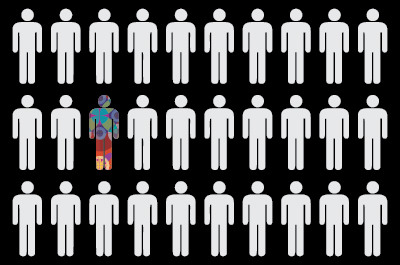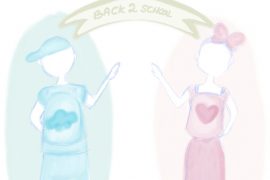Article in brief: Latest researches in the U.A.E have found that one out of every 50 children born is autistic. What is really scary here is that most of the U.A.E citizens either do not know, or know very little, about autism. In this article, the author will discuss this disorder in a brief straightforward way.

Autism is a growth disorder and a developmental disability that continues throughout the life of an individual and affects the way a person acts and speaks; it affects the link to those around them. It is very difficult for children and adults with autism to make clear and strong connections with others, and they usually have limited abilities to create friendships and understand how others express their feelings.
Early diagnosis is a very important step in the treatment; it enhances one’s chance of getting the right help and support.
The symptoms of autism that parents should be aware of are the following:
- Difficulty in engaging in any social relationship. Autistic kids tend to spend less time with others, and show less, or no interest in making new friends.
- Difficulty in verbal communication and non-verbal communication. Their language development is very slow, and in some cases it may not develop at all. They do not have the ability to fully understand the meaning of common gestures, facial expressions and voice tones.
- Difficulty in the development of interpersonal play and imagination. There is a lack in innovative play. The child does not try to start any fictional games except for a limited number of imaginative activities, copied and used with frequent strict manner.
Communicating with autistic children is very important; it gives the child a sense of safety and security. To communicate with your autistic child, you must try to attract their attention in a very clear way by using short sentences and simple words, play with them using simple games that fit with their level of understanding, understand their abilities, and try to deal with them very patiently.
Because of the nature of autism, symptoms differ from one to another. There is no particular way to decrease or eliminate the symptoms of autism in all cases, but we can help an autistic child by involving him/her in programs that work on treating their behavioral and language problems, developing their social skills, and overcoming their sensory issues. Yet we must make sure that these problems are addressed by trained specialists in consistent and comprehensive ways, which also happen to be flexible to change with the situation of the child.
Even though autism is a lifetime disorder, most autistics live an independent, nearly normal life, and that is because as children their parents engaged them in special educational programs that are especially structured to meet the child’s educational needs. They’ve put the child’s abilities under consideration, and motivated him/her to do the best they could one step at a time. They are also engaged in behavioral modification, and speech therapy programs that support any positive behavior by strengthening it, weakening any negative behavior, and increasing their ability to function and interact with their surroundings.
Look at your autistic child with your heart; sometimes your eyes might miss a lot of things. And just like someone once said, “Autism is no processing error. It is just a different operating system.”




Sometimes people with autism may seem insensitive or look unemotional, but often they just don't know how to express how they're feeling. It doesn't mean they don't have feelings — it can just be more difficult for them to show those feelings or understand the feelings of others.
Thanks for all your efforts that you have put in this. extremely fascinating details.